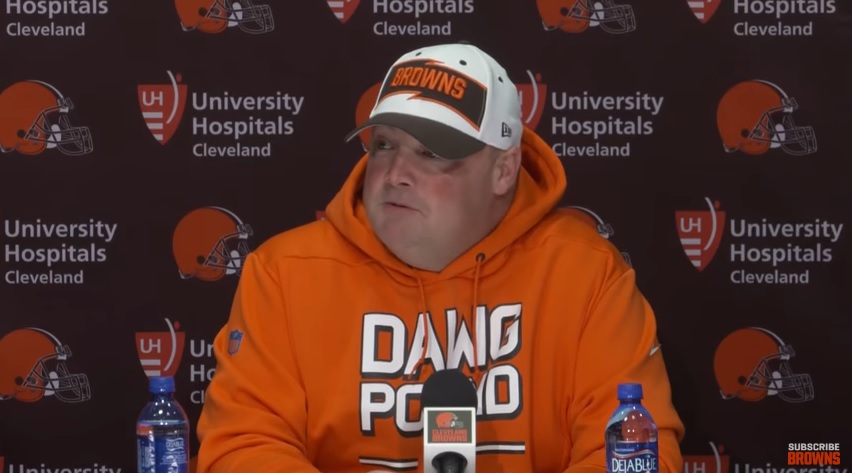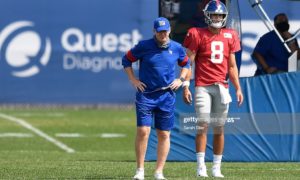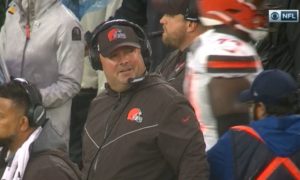The Cleveland Browns chose to hitch their wagon this offseason on novice head coach Freddie Kitchens, who offers an open and disarming personality. He entered the 2018 season as the team’s running backs coach, but was promoted to interim offensive coordinator in the middle of the year after the organization elected to part ways with their head coach and offensive coordinator at that time.
The front office obviously believed that Kitchens’ leadership of the offense, and his relationship with then-rookie quarterback Baker Mayfield, was perhaps the primary catalyst for the team’s turnaround. After starting the season 2-5-1, they finished the year 5-3, including a 5-2 record over the final seven games.
Part of the draw in making him head coach, presumably, was that he also intended to keep doing what presumably got him into that position in the first place, which was calling the plays on offense. Even though he hired an offensive coordinator in Todd Monken, he had stressed, adamantly, all along that he would maintain his responsibilities as play-caller during games.
Now Kitchens’ play-calling ability is under the microscope with the Browns off to a 1-2 start to the season, highlighted by what many are viewing as a major gaffe at the end of their loss on Sunday night. Down seven, with first and goal, under two minutes to go and with three timeouts, he called only passing plays, and they failed to score.
“I do wish I would have given the ball” to running back Nick Chubb, he told reporters yesterday, according to a transcript of his press conference provided through Pro Football Talk. “As you move forward”, he added, the organization understands “that some of these situations are new for me”.
“I understand that, but I also understand that I will get better from it and I understand our team will get better from them”, he went on. “Our team has not been in that situation before, so our team will get better. The next time that arises, we will be better because of it. The thing I want to stress to everyone is we are building this thing”.
Despite the self-acknowledged issues with his own play-calling, he once again adamantly rejected any suggestion that he would relinquish even the slightest control over those responsibilities. It was suggested that Monken could call the plays. “That is not even feasible”, he said. “That is not being considered”.
It was suggested that Monken could call plays just for a stretch as an experiment to see how it would work out. “It is not going to happen”, was his response. Even the suggestion that they collaborate on making the calls was rejected, emphasizing that any failure “is going to be on me”.
Kitchens attached himself to his ability to call plays as the bulk of his resume. Perhaps he believes he becomes infinitely more expendable without it. So he must either sink or swim as the one executing his offense, alone.






